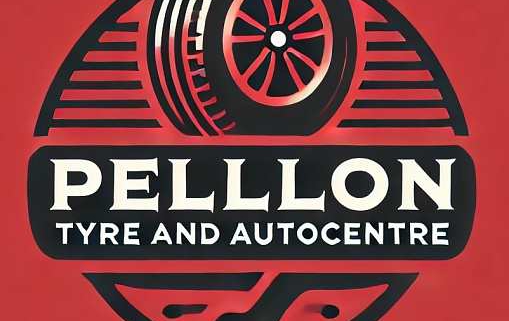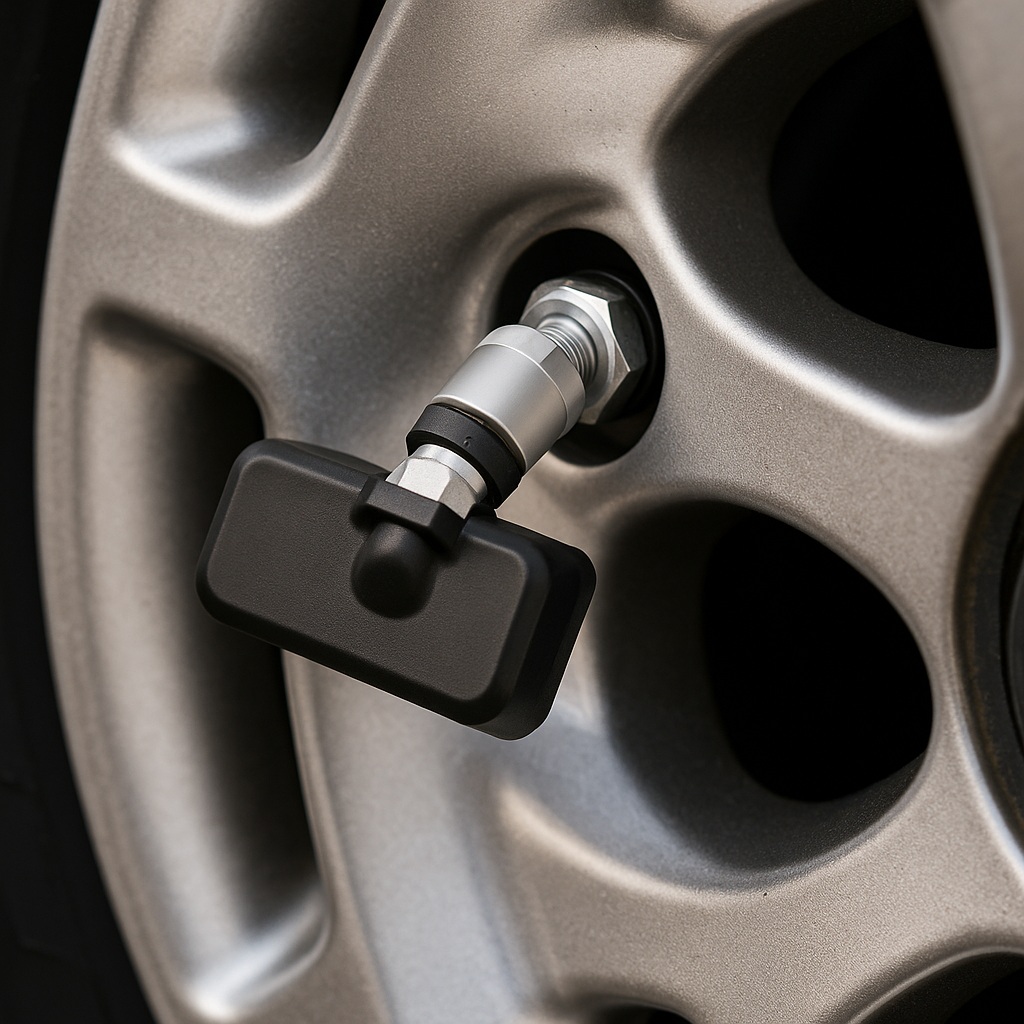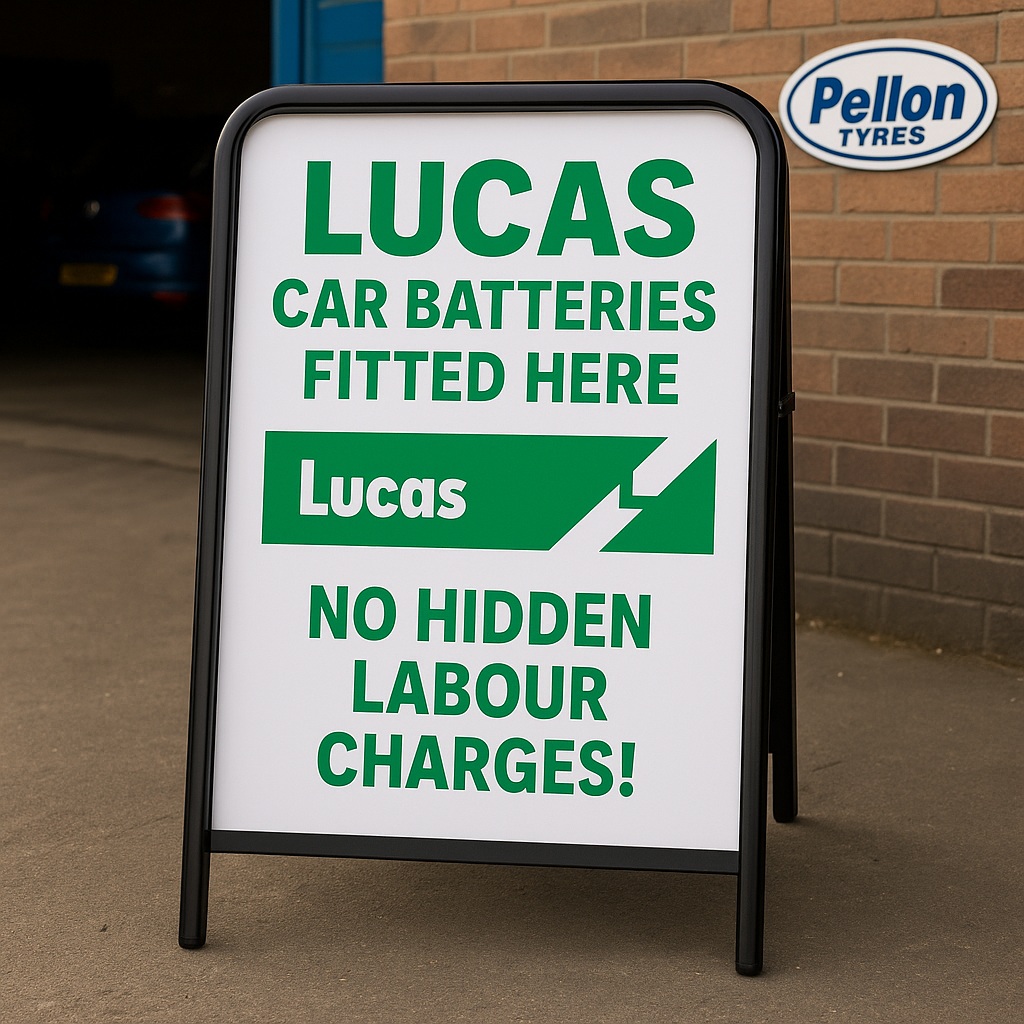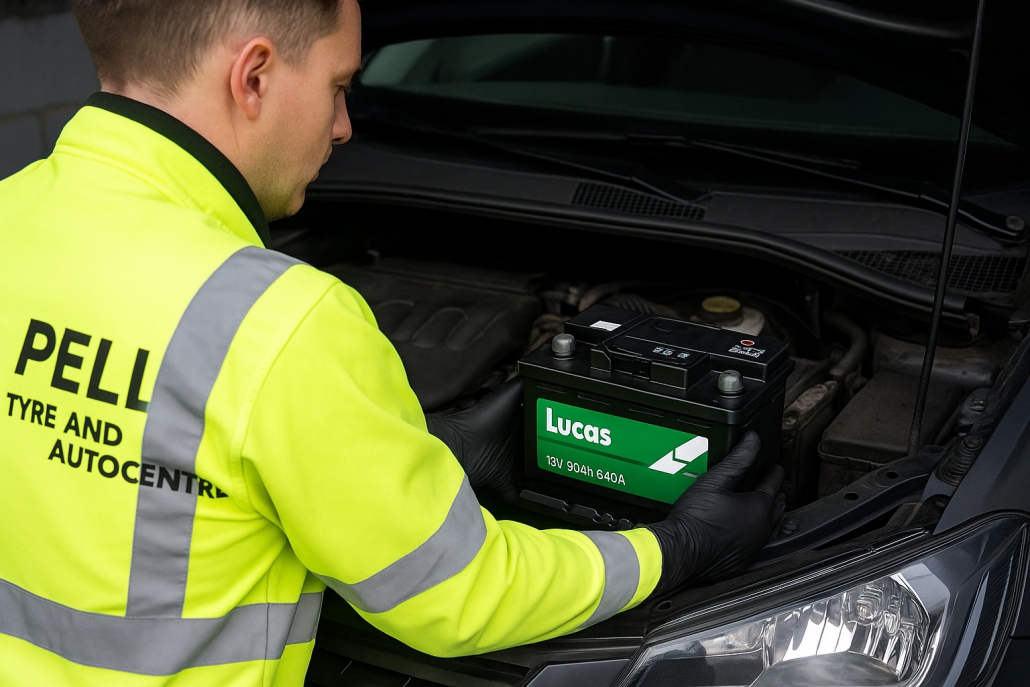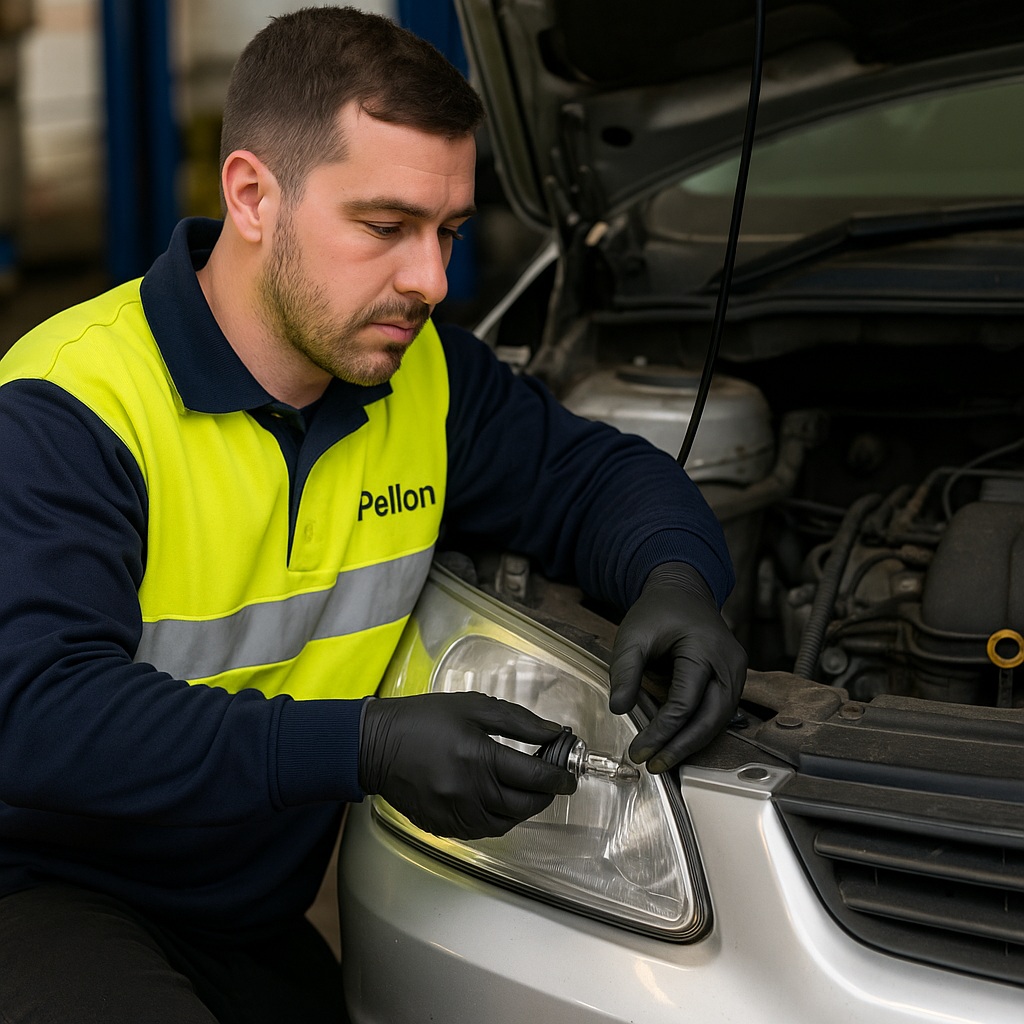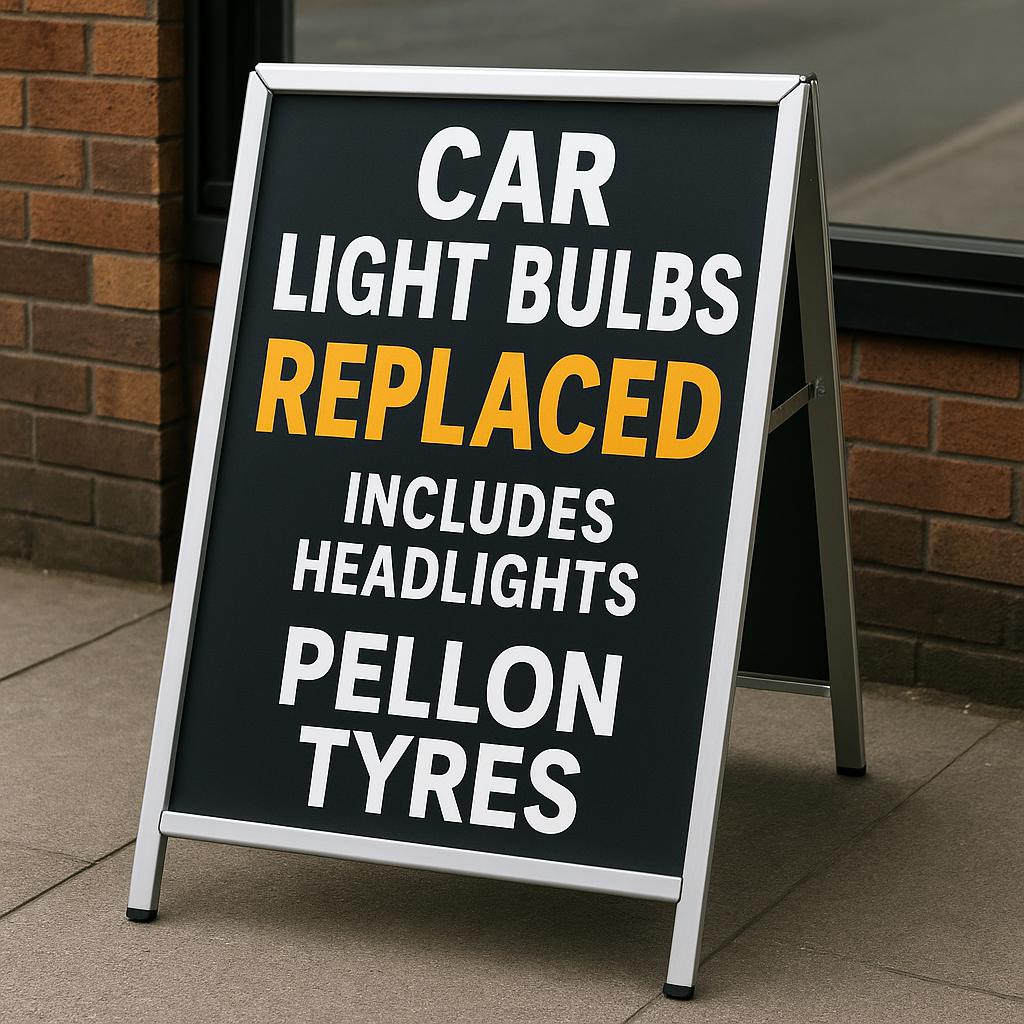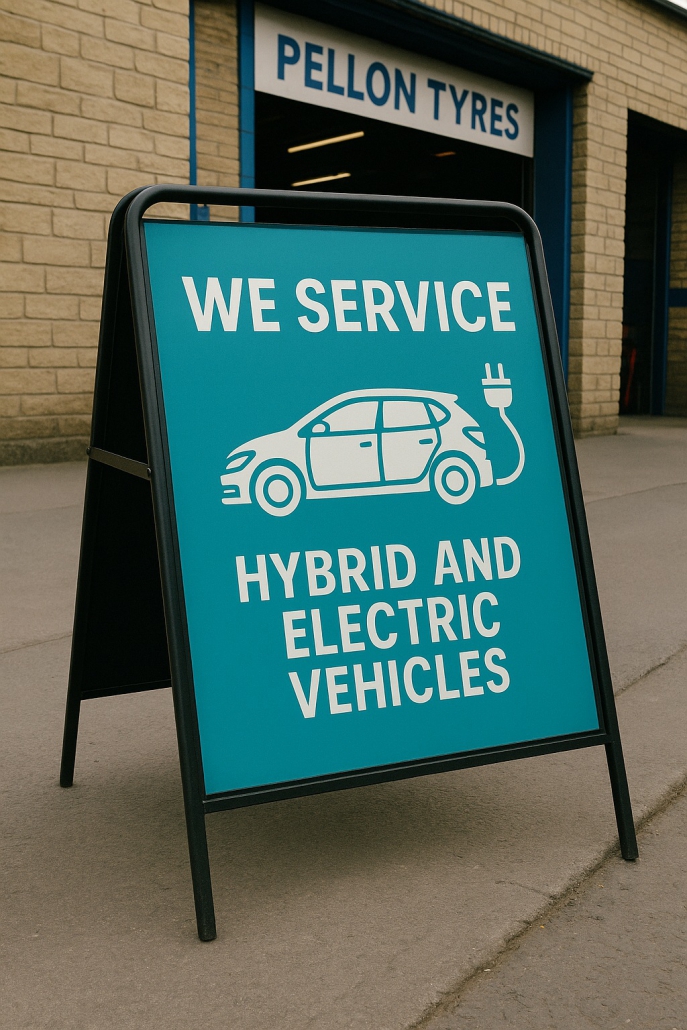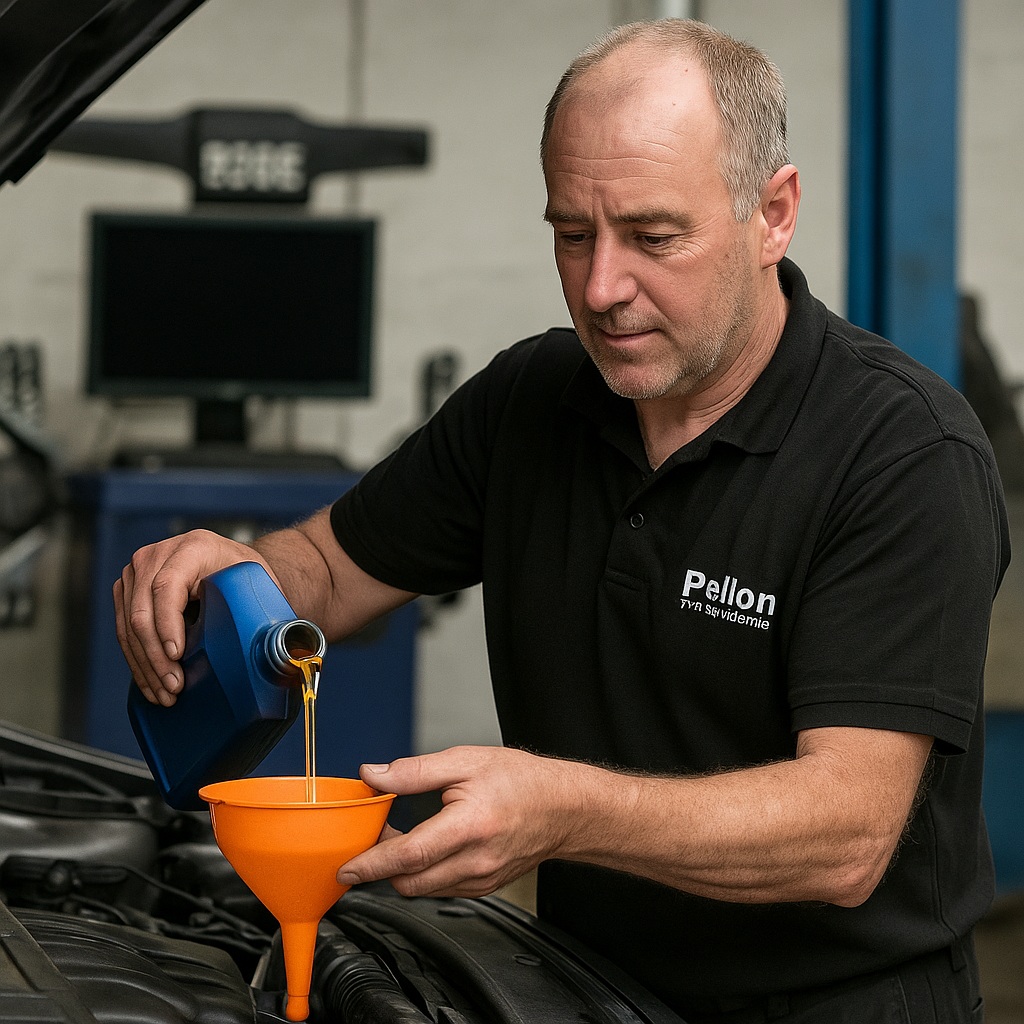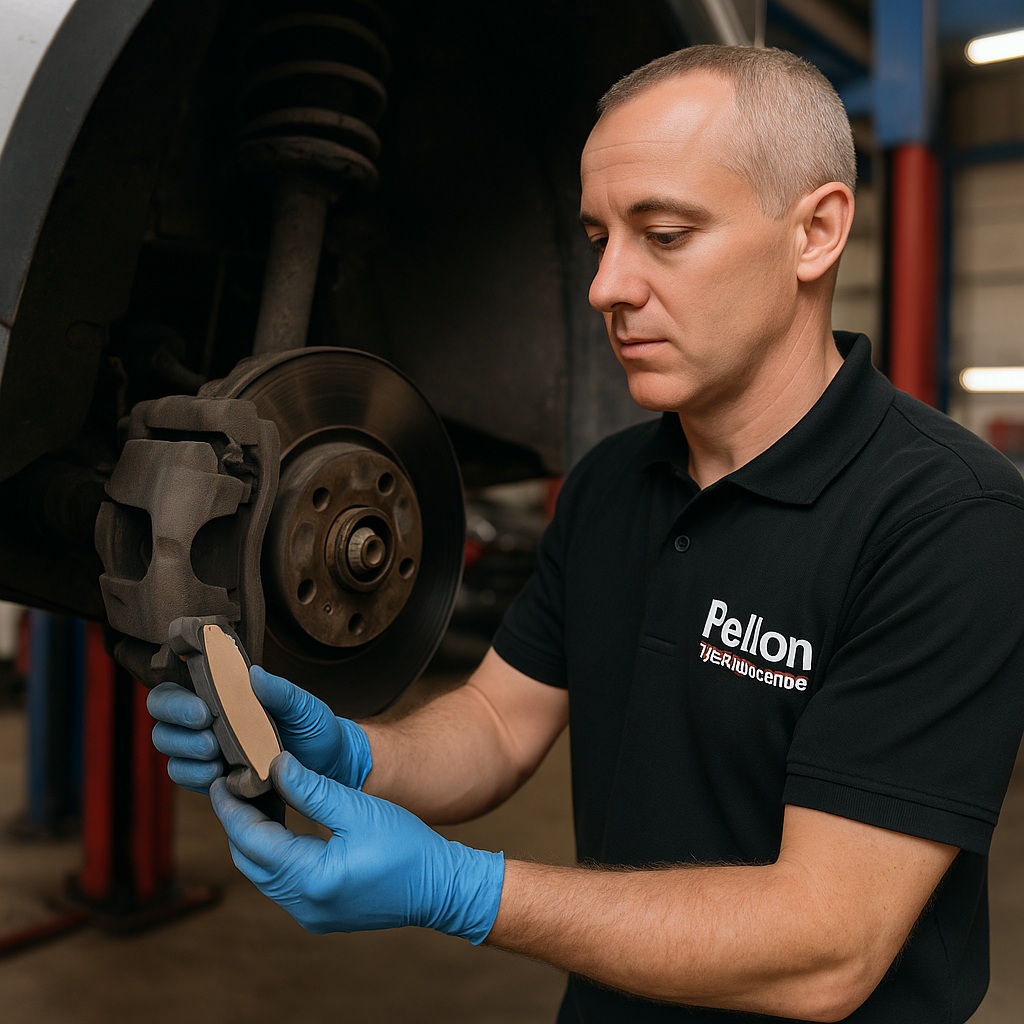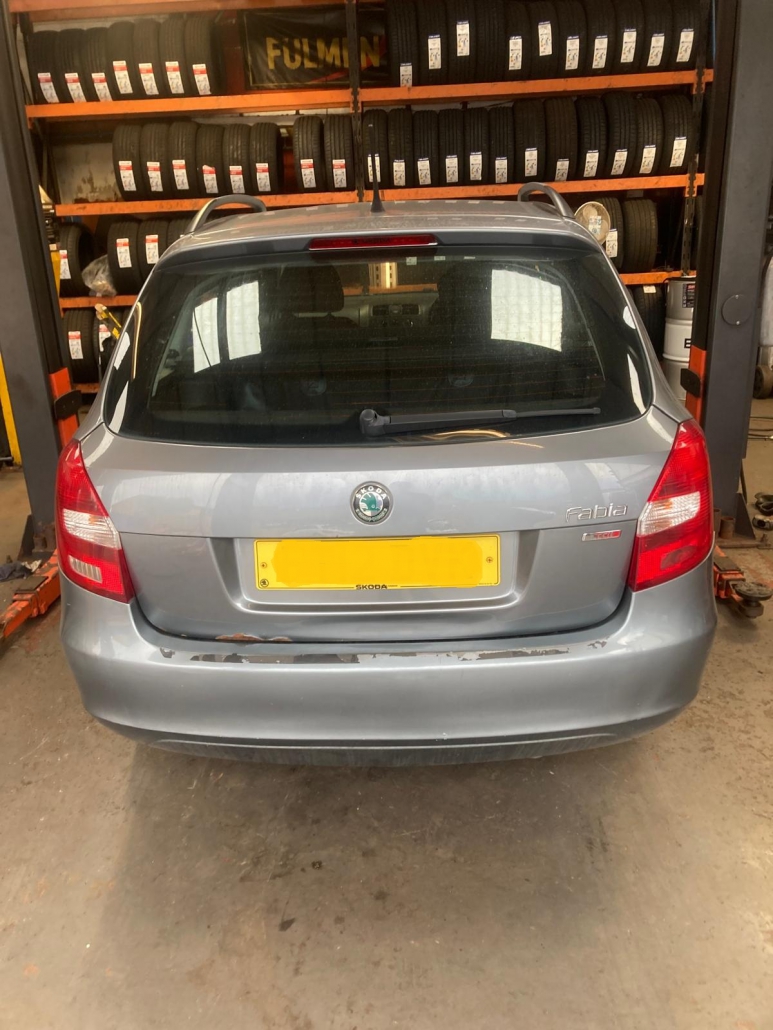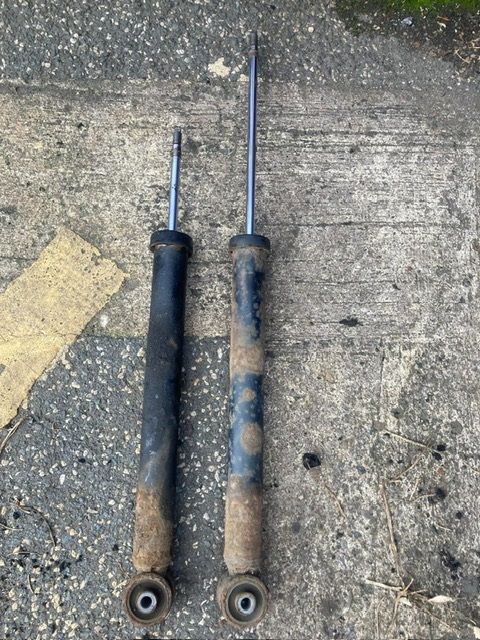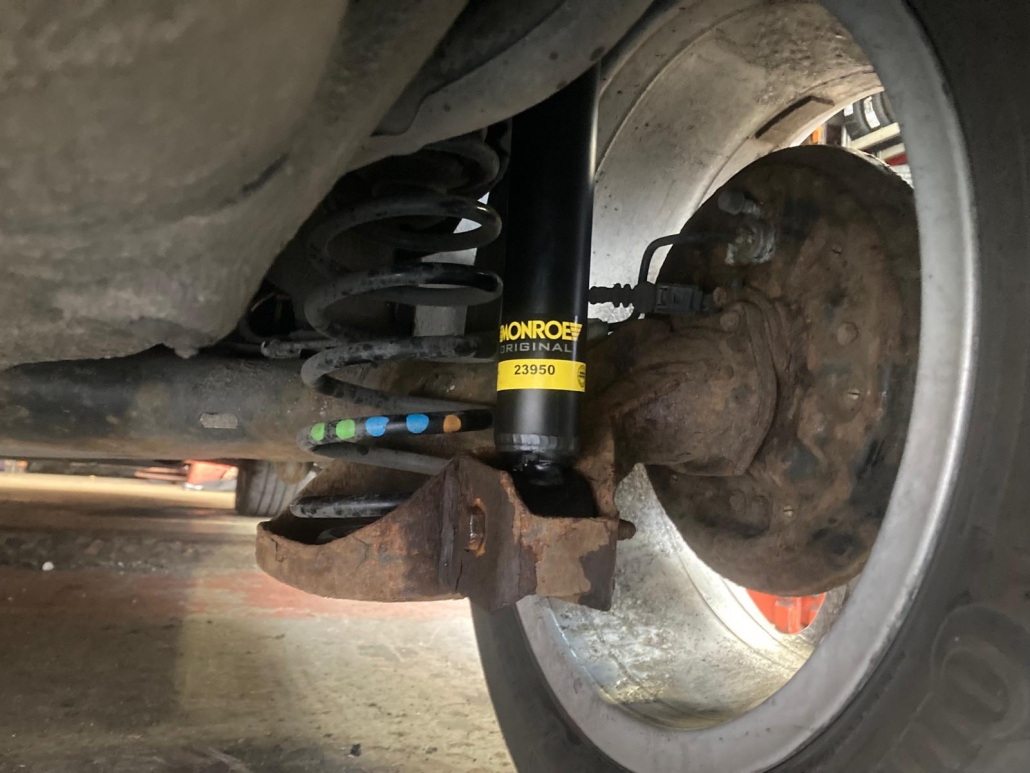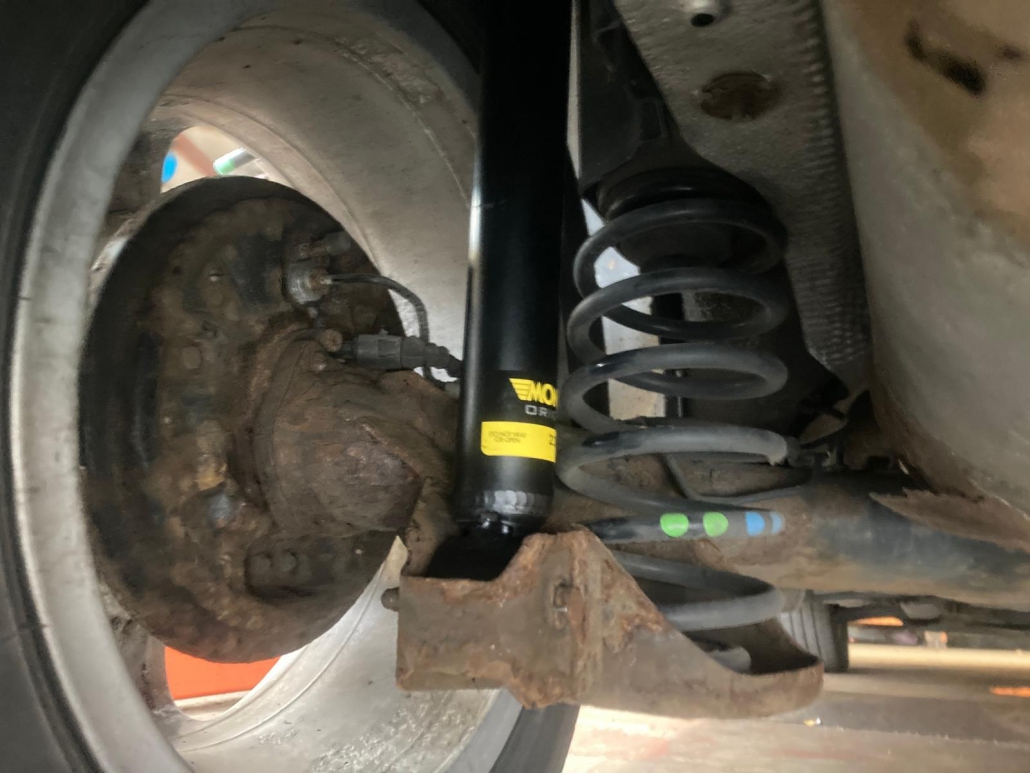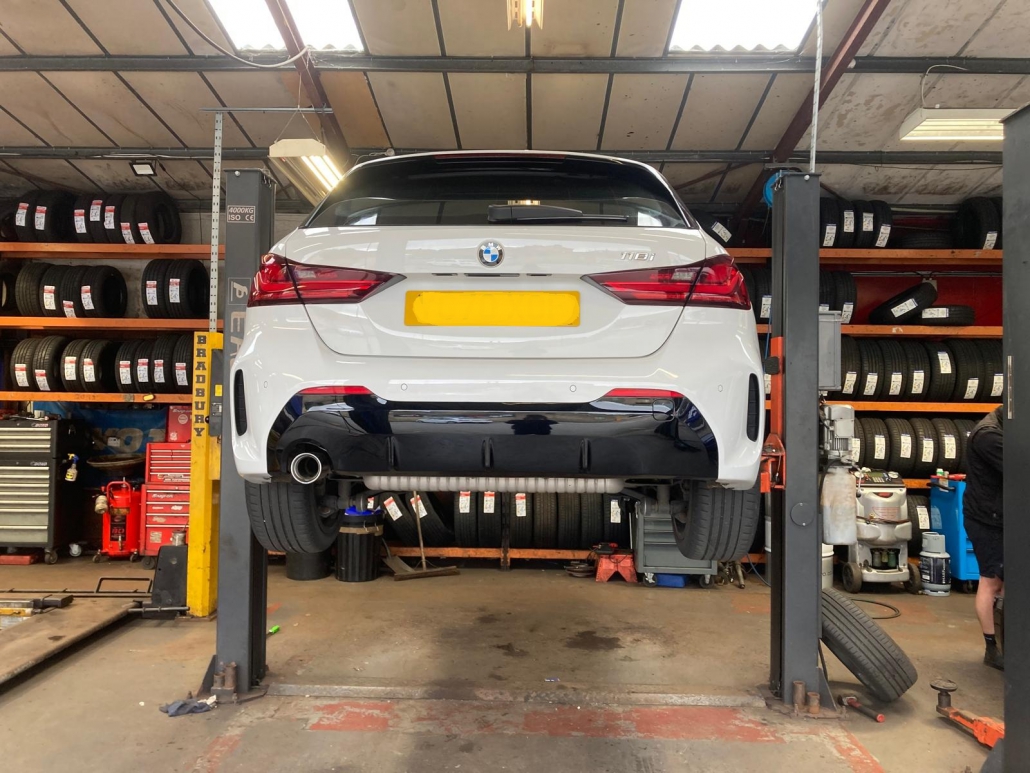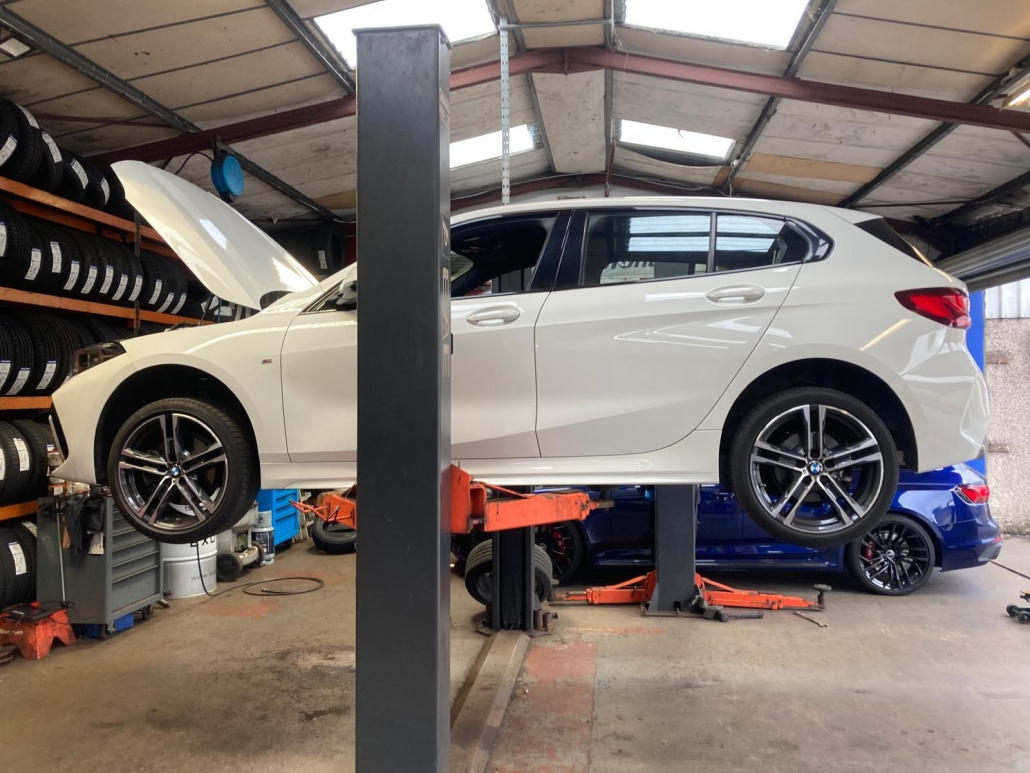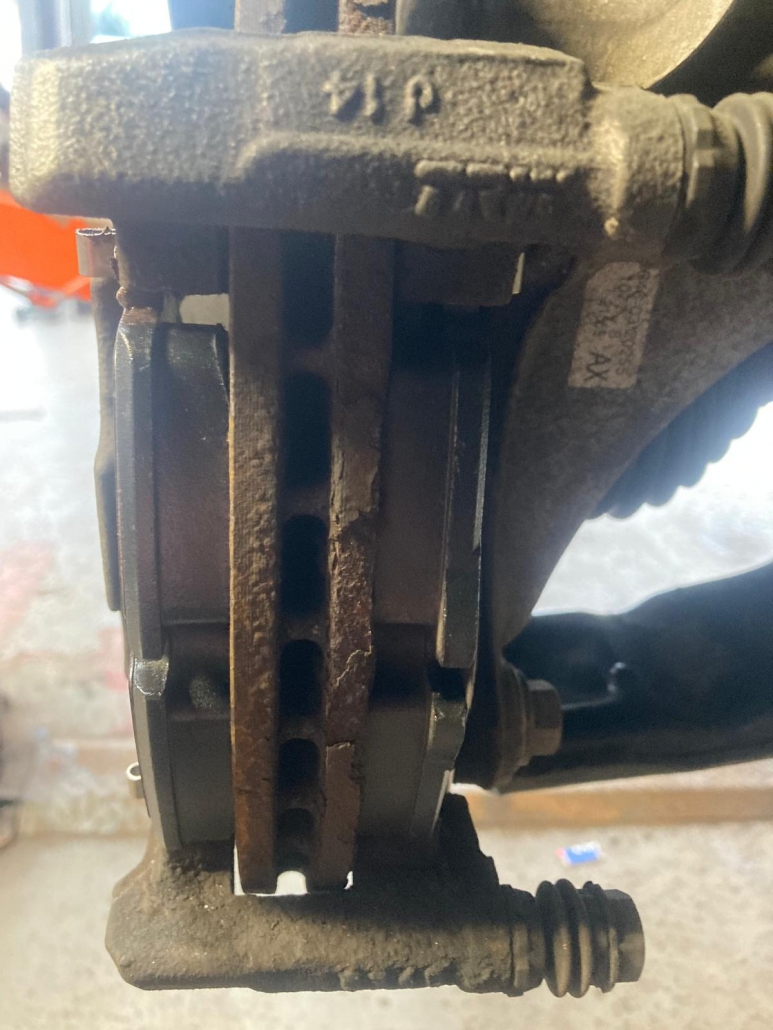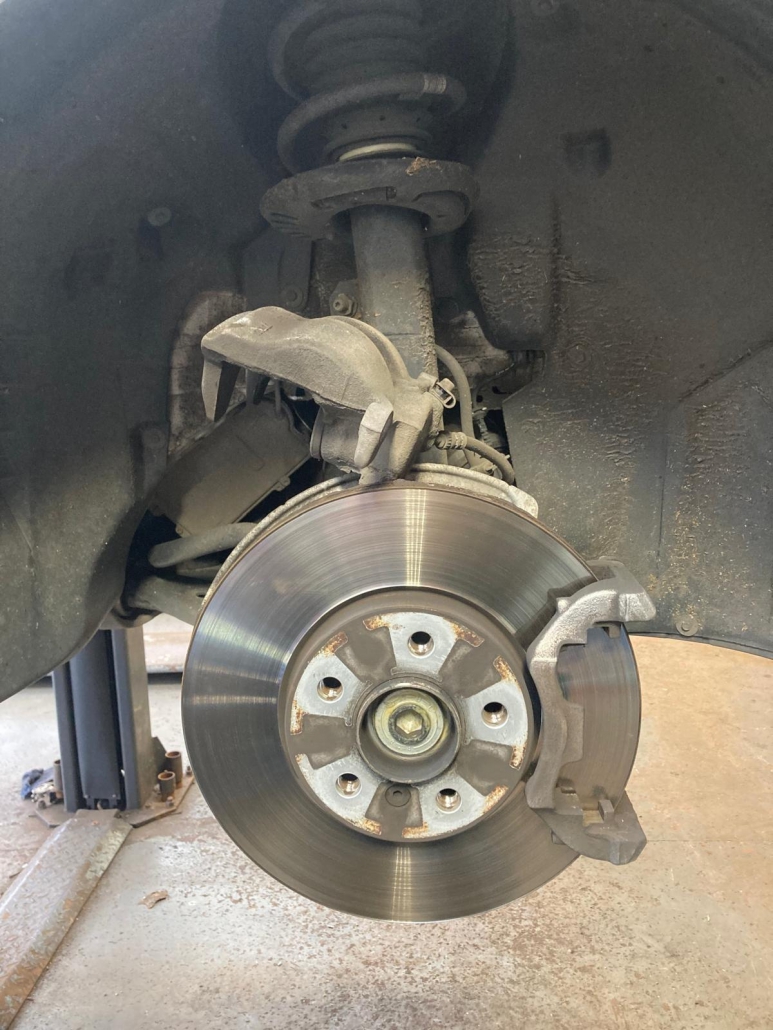VW-Golf-for-Mazzini-Tyres
Table of Contents
VW-Golf-for-Mazzini-Tyres
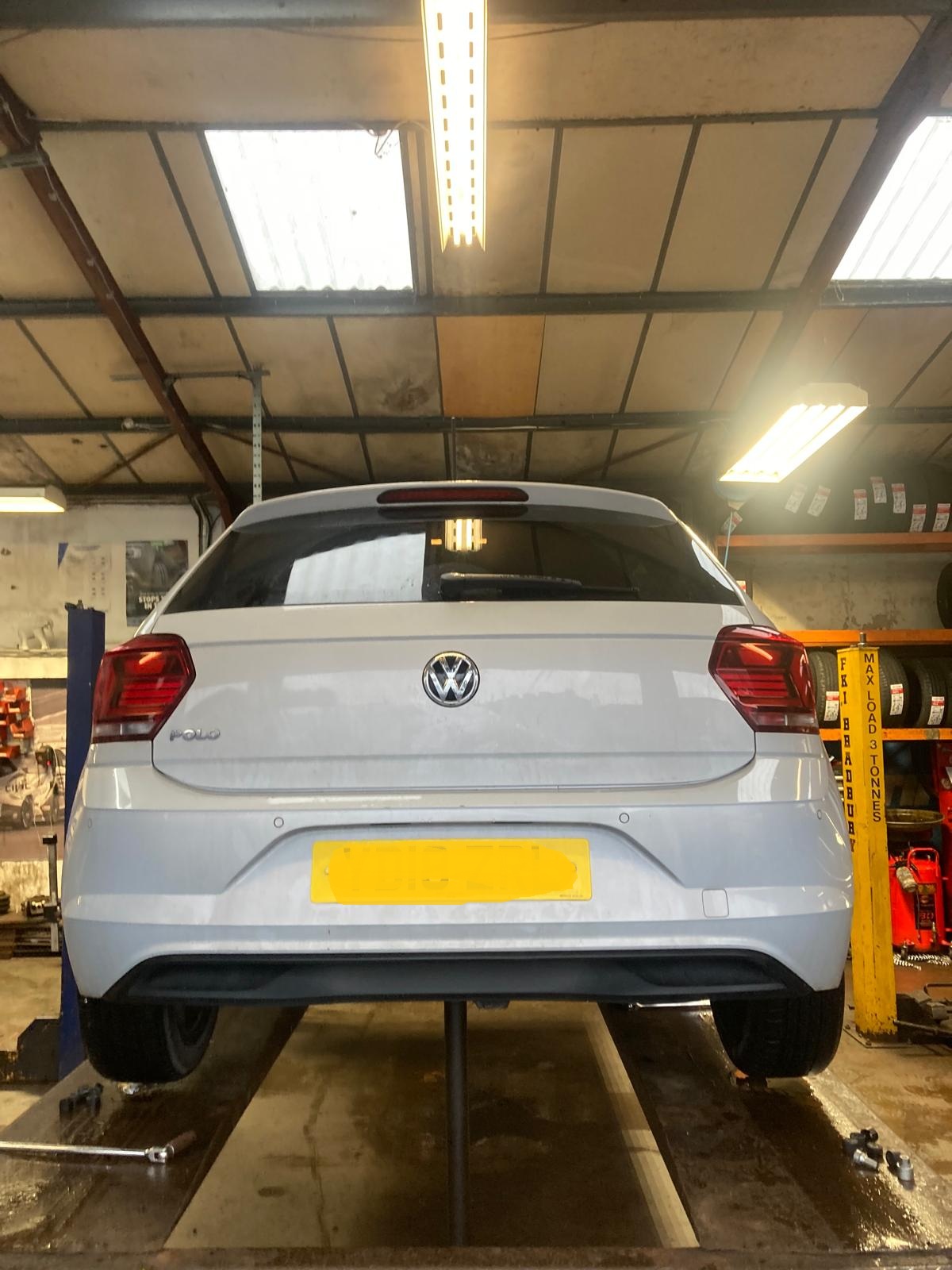
VW-Golf-for-Mazzini-Tyres
Busy Winter Days, Free Tyre Checks, and a White VW Golf on Mazzini Tyres
Drivers seeking budget-friendly solutions often find that the VW-Golf-for-Mazzini-Tyres meets their needs perfectly.
It’s that time of year again at Pellon Tyres when the kettle barely gets a chance to cool and the ramps are never empty. As soon as the first frosts arrive over the tops and the roads around Halifax get that greasy winter shine, drivers start calling in for free tyre checks.
We’re seeing plenty of bald and damaged tyres at the moment, and the last thing anyone wants is a puncture or a blow-out on the way to Christmas dinner. There’s nothing festive about sitting at the side of the road on Christmas Day waiting for recovery.
One of yesterday’s visitors was a tidy white VW Golf that pulled in for our free tyre check. A quick look from Dale showed what the owner probably already suspected – two tyres were past their best and needed replacing. After a chat in reception, she decided on a pair of quality budget Mezzini tyres, a sensible choice for a car that’s doing everyday runs around Halifax, school runs, work commutes and the odd Christmas shopping trip to the Piece Hall markets. The Piece Hall + 1
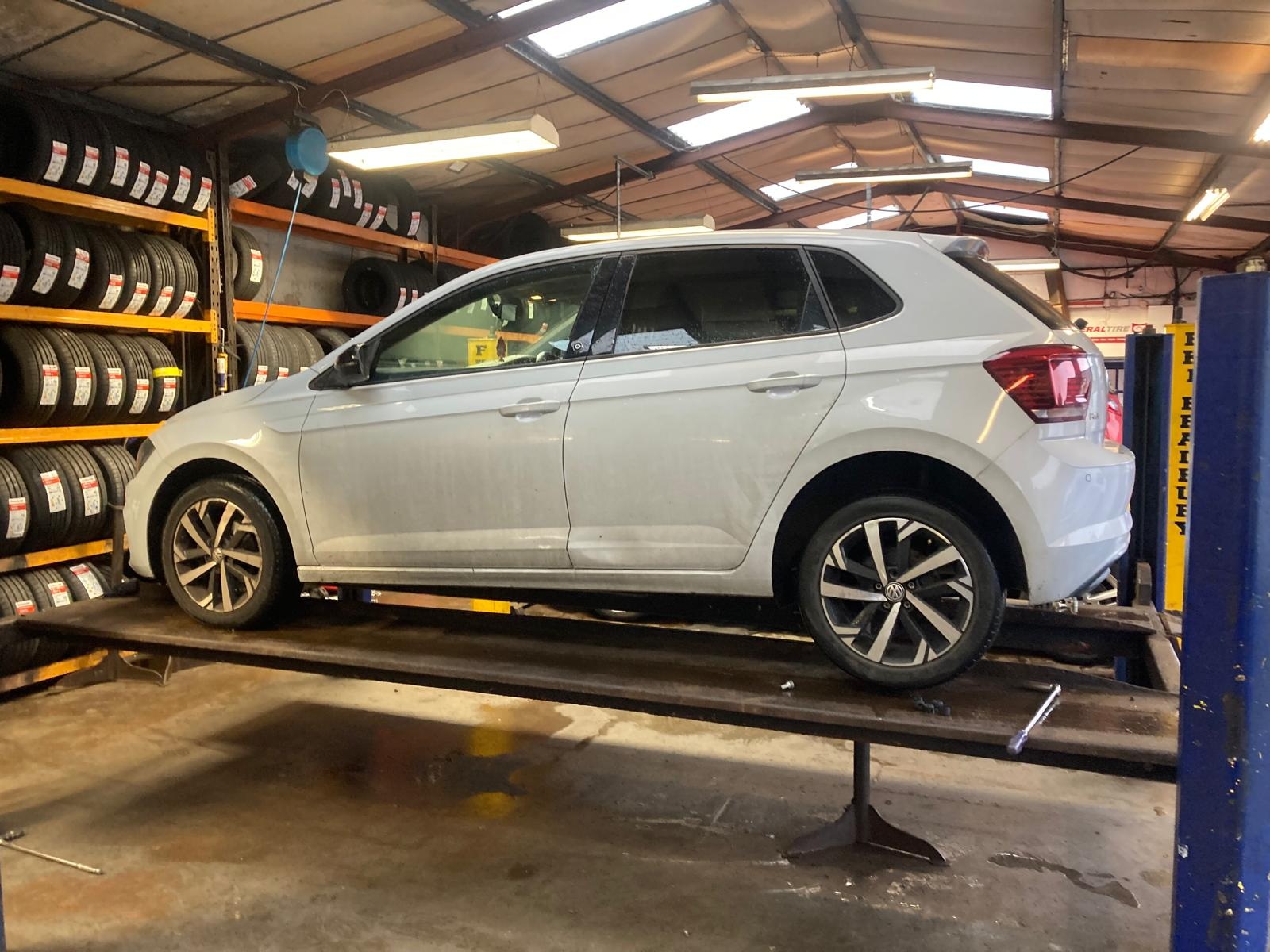
Mezzini Tyres – Sensible Budget Choice for Everyday Drivers: VW-Golf-for-Mazzini-Tyres
Mezzini (often written VW-Golf-for-Mazzini-Tyres) is a value-focused tyre brand with European roots, originally associated with Italian styling and standards. Mazzini Tyre The brand was introduced in the early 2000s by Best Choice, a large tyre manufacturer, as their own dedicated budget line. Since then it’s grown into a global brand, supplying car, SUV and light truck tyres to drivers who want solid performance without paying premium prices. RAC +1
In plain English:
Choosing the right tyres for your vehicle is essential, especially for models like the VW Golf, which is a popular choice for many drivers. This is where VW-Golf-for-Mazzeni-Tyres comes into play.
When considering the perfect choice for your vehicle, the VW-Golf-for-Mazzini-Tyres stands out due to its reputation for reliability and performance.
They’re budget-friendly, so they’re ideal if Christmas has already emptied your wallet.
They offer a good balance of grip, comfort and wear for normal day-to-day driving. Grangemouth Tyres
They’re available in a wide range of sizes, which is handy when you’re working on popular cars like the Golf.
We’re always honest with customers – if someone is doing high mileages up and down the motorway every week, we might steer them towards a mid-range or premium option. But for normal town and A-road driving around Halifax, a decent budget brand like Mezzini is often spot on. Fit them properly, set the pressures right and keep an eye on them, and they’ll do a cracking job.
For many drivers, the VW-Golf-for-Mazzini-Tyres is a go-to option that combines quality and affordability, making it an ideal choice.
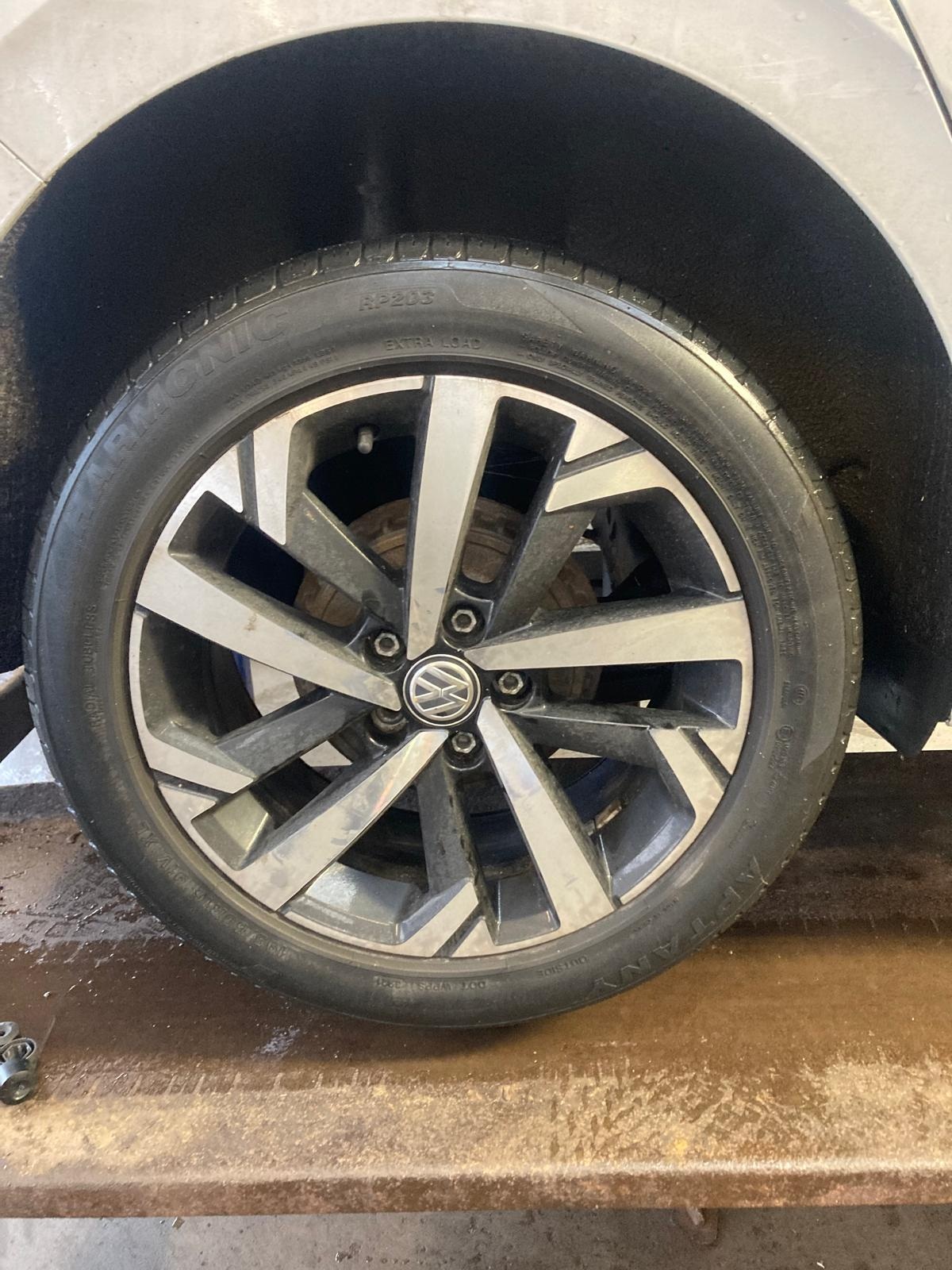
The VW Golf – A Proper UK Favourite, Still Going Strong in Halifax: VW-Golf-for-Mazzini-Tyres
The Volkswagen Golf has been part of British motoring life since the mid-1970s. Launched in 1974, it more or less set the template for the modern family hatchback and has stayed near the top of the sales charts ever since. JCT600+1
Over eight generations, more than 37 million Golfs have been sold worldwide, and it’s still one of Europe’s most popular cars. VW Press From the early Mk1s to the latest Mk8s, they’ve built a reputation for being solid, practical and just that bit nicer to drive than many rivals.
Around Halifax you see them everywhere:
Young drivers in older Golfs heading over the tops towards Hebden Bridge.
Families in newer Golfs doing the school run and supermarket trips.
Commuters using them for daily runs along the A629 and into town.
It’s one of those cars that just works on our steep roads and tight side streets – not too big, not too small, and happy enough tackling a frosty morning up towards Queensbury or a wet run through town to the Piece Hall Christmas Market.
Free Tyre Checks – Just pull in and we’ll have a look. VW-Golf-for-Mazzini-Tyres
This white VW Golf is a good example of how we like to work at Pellon Tyres. The customer didn’t have an appointment – she simply pulled in for a free tyre check. We popped the car on the ramp, checked all four tyres, and then talked through the options.
No pressure, no hard sell – just straightforward advice. Once she chose the Mezzini tyres, we:
Fitted and balanced the new tyres
Checked the other two for pressure and condition
Made sure everything was safe before she drove off
If you’re worried about your tyres as winter sets in, especially before long drives to see family or trips to the Halifax Christmas markets, you’re welcome to do the same. Just call in and we’ll check them while you wait. If they’re fine, we’ll say so. If they’re not, we’ll explain your options and prices clearly before doing any work.
For those considering options, the VW-Golf-for-Mezzeni-Tyres offers an excellent balance of quality and affordability.
Keeping Halifax Moving – Whatever the Weather: VW-Golf-for-Mazzini-Tyres
With the Pennine weather, salty winter roads and steep hills, tyres in Halifax have a tough life. That’s why we always remind customers:
Don’t ignore uneven wear or cracking on the sidewalls
Watch for the tread dropping close to the legal limit
Keep your pressures checked regularly, especially in cold snaps
Whether you drive a VW Golf, a little city runabout or a big family SUV, good tyres are the difference between getting there safely and ending up at the side of the road waiting for recovery on Christmas Day.
Consider the benefits that the VW-Golf-for-Mazzini-Tyres provides for both performance and cost-effectiveness.
And if you’re already dreaming of warmer days, once winter’s behind us, you might even fancy a quiet break on the Yorkshire coast in the spring or summer – our Lucky Paws holiday home at Thornwick Bay is ideal for a peaceful seaside escape (just note it’s not dog-friendly and it doesn’t open in winter).
- Reducing Headlight Glare
- Dazzling Headlight Problem
- Falken Winter Tyres: when the snow arrives in 2024
- New Emissions MOT Equipment
- Hybrid Car Servicing: Pellon Autocentre in Halifax
With the VW-Golf-for-Mazzini-Tyres, you can drive with confidence, knowing you have made a sensible choice for your vehicle.
